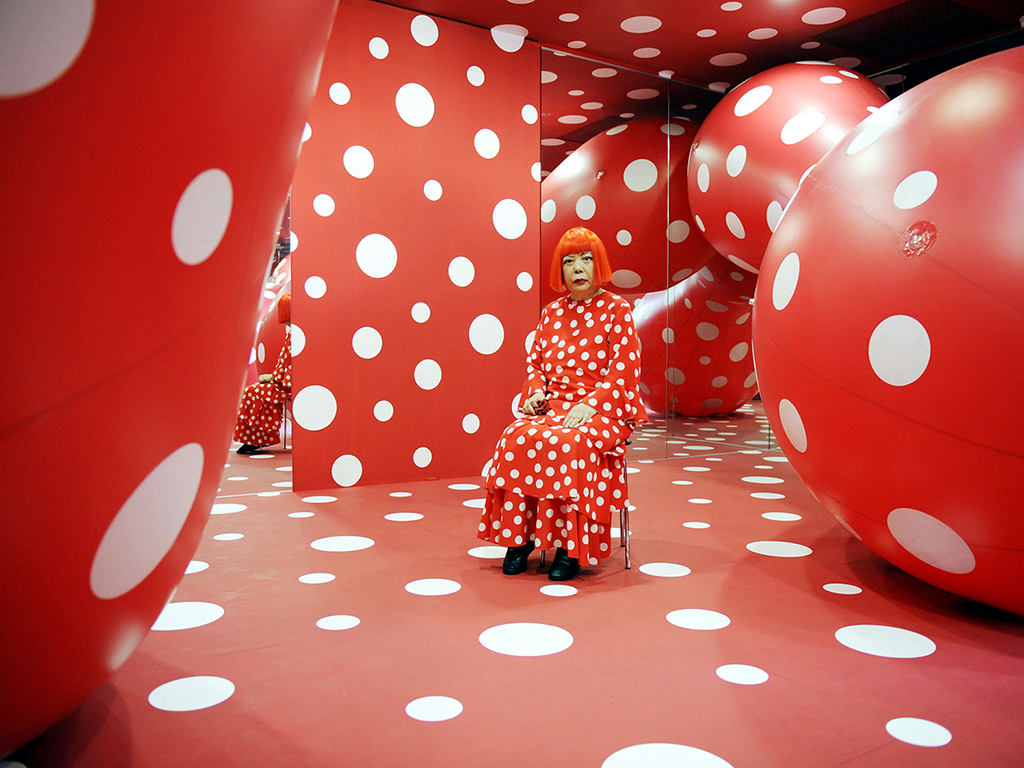
As I lay on an inflatable off-white blob on the floor of a 21 metre-high warehouse, all I could think about were spots. The piece of “immersive art” I perched atop was one of Yayoi Kusama’s Clouds. Surrounding me were all manner of blow-up items: pumpkins (yellow with black spots), suspended spheres (red with white spots), a huge doll with Playmobil-like hair (her dress was also red with white spots) and an open-mouthed dog (blue with yellow spots). At the far end of the space inflatable tentacles grew up from the floor (pink with black spots).
“You, Me and the Balloons” is the blockbuster exhibition of this year’s Manchester International Festival (MIF) and the first show to open in the city’s brand new cultural venue. The building, which was originally named Factory International after the influential Manchester record label, has received the biggest capital investment in the history of Arts Council England and is considered the largest national cultural project to open in England since the Tate Modern in 2000. But on 20 June, just ten days before MIF opened, it was announced that the venue would be renamed Aviva Studios, after the insurance company acquired naming rights for a reported £35m.
That a Kusama exhibition is the first show in this newly co-opted space feels apt. The 94-year-old Japanese artist is known for psychedelic installations – almost always featuring dots and pumpkins – and her “infinity mirror rooms” of multicoloured lights. This is the epitome of art made to be photographed, selfied in, posted to Instagram. It is vibrant and accessible, but its ubiquity has made it trite. Kusama makes no attempts to be anything but samey.
“Can I ask you to take your shoes off before you interact with the art?” a gallery assistant said to a man heading to lie, like me, on a cloud. I hope he didn’t think I was “interacting”, I thought. I was merely lying down, taking a rest from staring at spots.
[See also: National Portrait Gallery review: mugshots of a nation]
This article appears in the 05 Jul 2023 issue of the New Statesman, Broke Britannia



